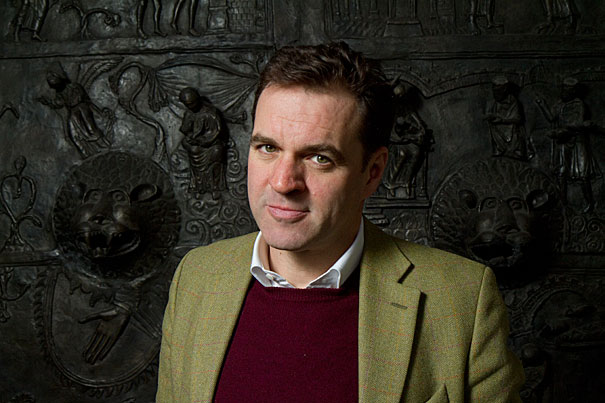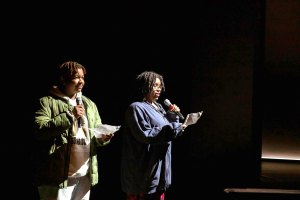Arts & Culture
-

Voice of a generation? Dylan’s is much more than that.
Classics professor who wrote ‘Why Bob Dylan Matters’ on the challenge of capturing a master of creative evasion
-

Holiday treats from the kitchen of Julia Child
Recipes from celebrity chef’s archive at Radcliffe
-

How a ‘guest’ in English language channels ‘outsider’ perspective into fiction
Laila Lalami talks about multilingualism, inspirations of everyday life, and why she starts a story in the middle
-
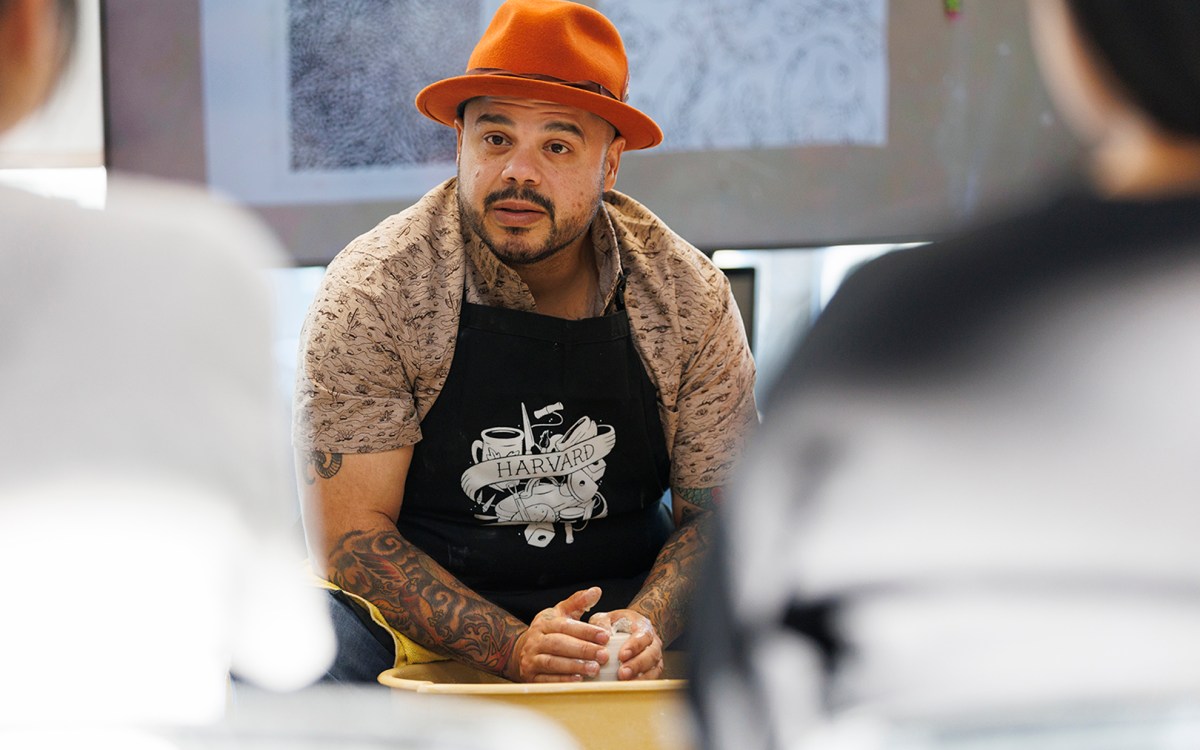
Potter gets fired up about helping students find their own gifts
Roberto Lugo says his art creates conversations and ‘that’s where the magic happens’
-
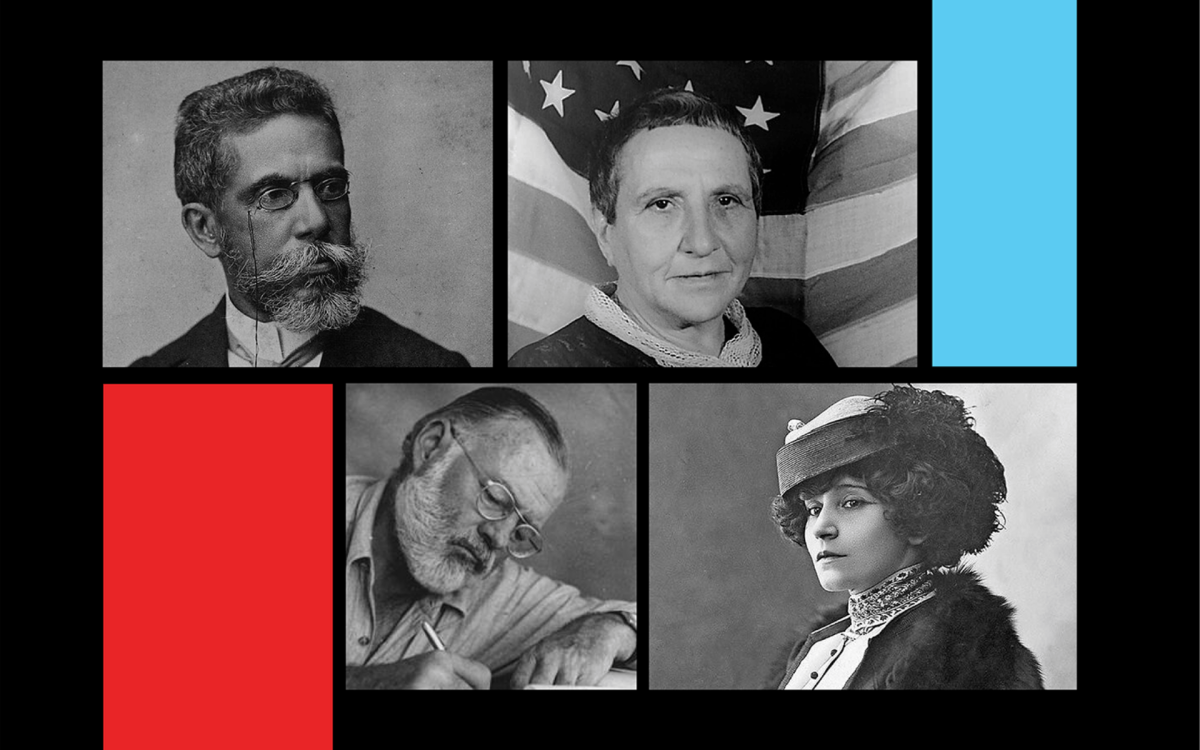
The 20th-century novel, from its corset to bomber jacket phase
In ‘Stranger Than Fiction,’ Edwin Frank chose 32 books to represent the period. He has some regrets.
-
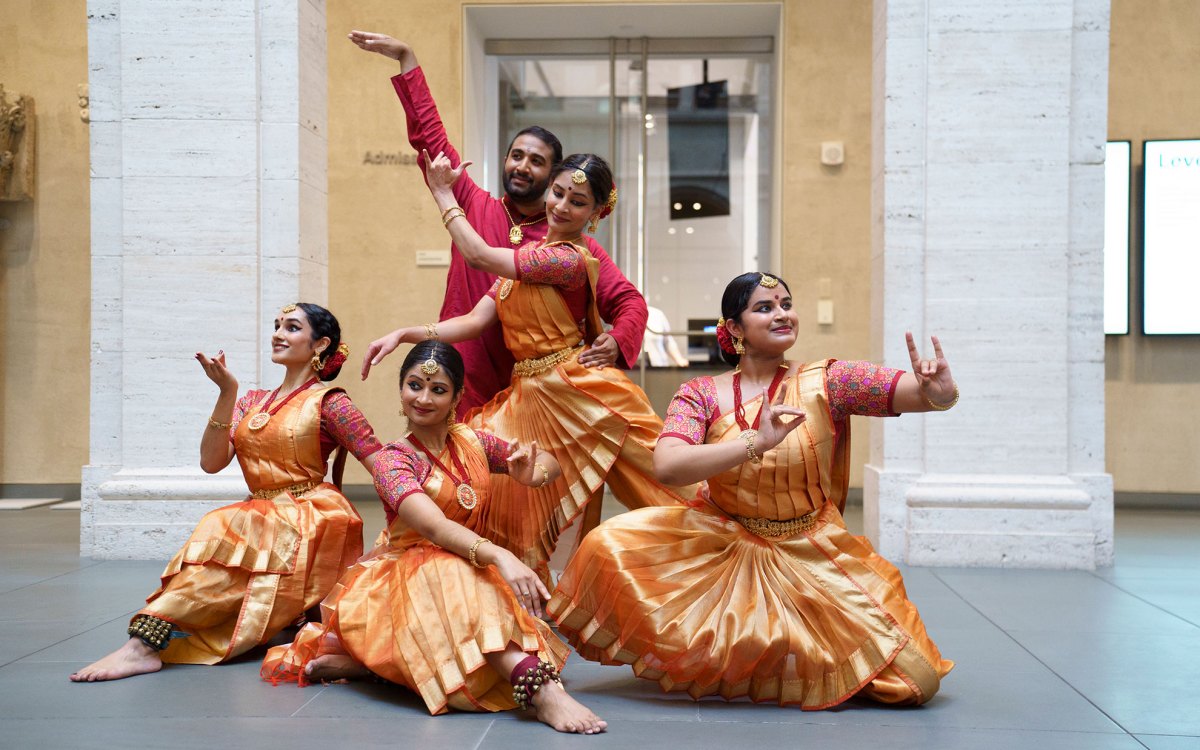
Dance the audience can feel — through their phones
Engineer harnesses haptics to translate movement, make her art more accessible

-
GSAS student joins worldwide discussion
Harvard Graduate School of Arts and Sciences student Matthew Mugmon will be one of seven panelists convened by the New York Philharmonic for a worldwide, online discussion on Harvard alumni Leonard Bernstein’s groundbreaking tours to the former Soviet Union, Japan, Europe, and South America.
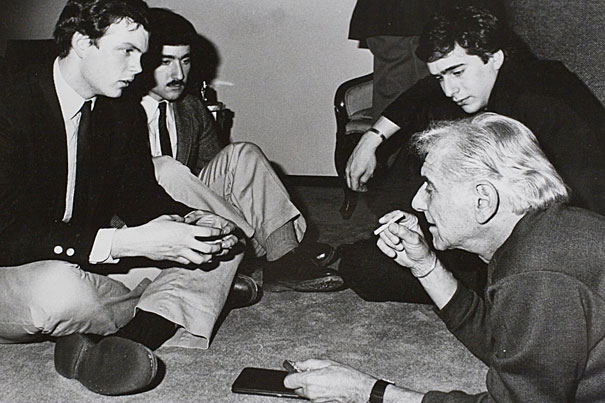
-
On the nature of modern thought
The story of 15th-century book hunter Poggio Bracciolini and his rediscovery of Lucretius’ “On the Nature of Things” was captured by Cogan University Professor Stephen Greenblatt in his National Book Award-winning account, “The Swerve: How the World Became Modern.”
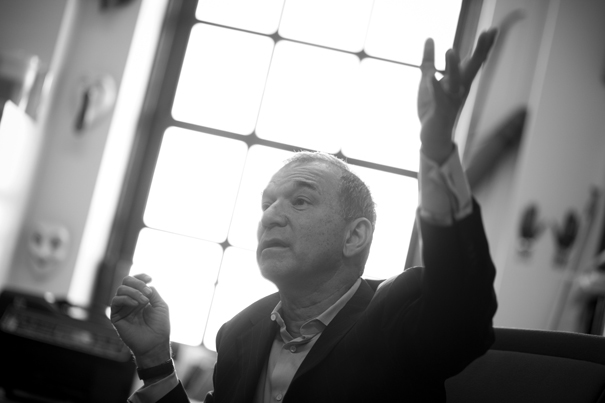
-
Personal stories of transformation
A new multimedia collaboration inspired by the A.R.T. production “Wild Swans” aims to capture and spread personal stories from members of the Greater Boston community with ties to China.
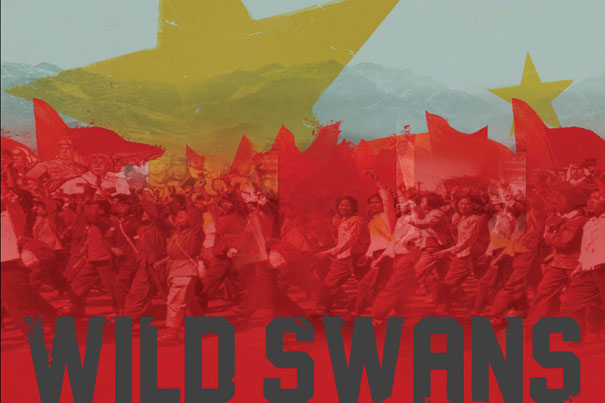
-
The return of the murals
Adolphus Busch Hall, once home to the Harvard Art Museums/Busch-Reisinger Museum, is amid a major renovation. Recently completed work includes restoration of two once-controversial artworks critical of fascism.
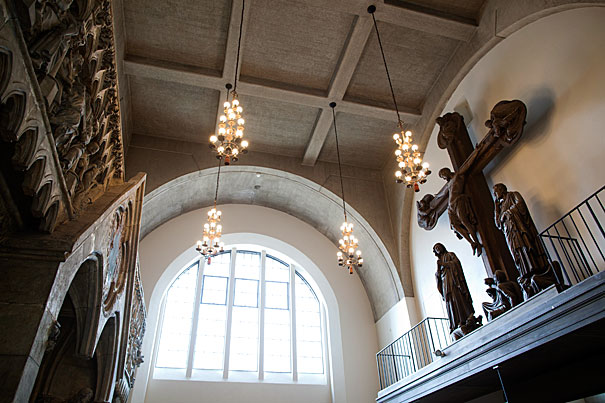
-
Whither Guantánamo
In his new book, “Guantánamo: An American History,” lecturer Jonathan Hansen uncovers the rich and controversial history of an American empire on the tip of Cuba.
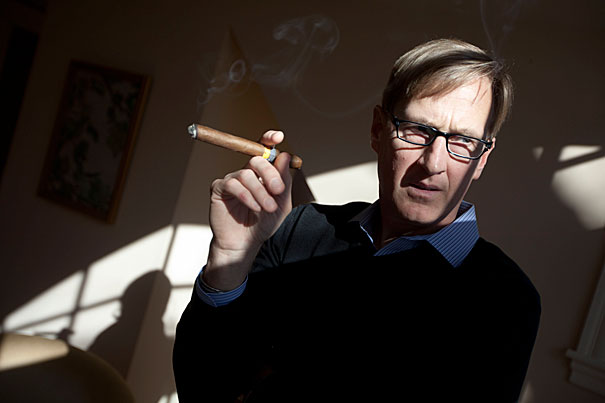
-
Critical preoccupations
Rem Koolhaas, a professor in practice of architecture and urban design at the Harvard Graduate School of Design (GSD), shared his thoughts on those and other subjects before an overflow crowd at Piper Auditorium with a presentation titled “Current Preoccupations.”
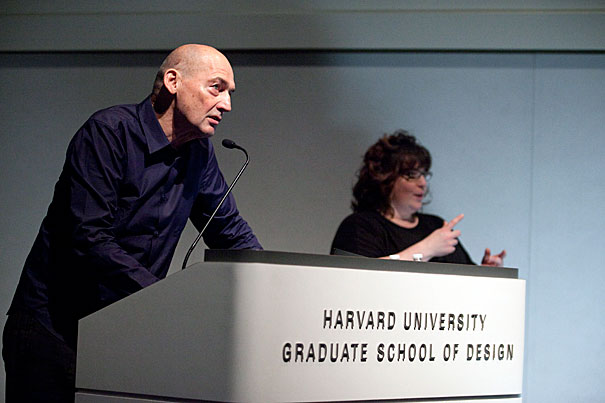
-
Cast in bronze
On a chilly afternoon in January, nine students watched in excited amazement as three leather-clad metalsmiths lifted a glowing crucible filled with molten bronze and poured fiery metal into sculpture molds.
-
‘Body of Work’
Through her art and articulate explanations of her own struggle with an eating disorder, visiting artist Judith Shaw explained the internal experience of victims of anorexia to her audience at the opening reception of “Body of Work” at the Student Organization Center at Hilles.
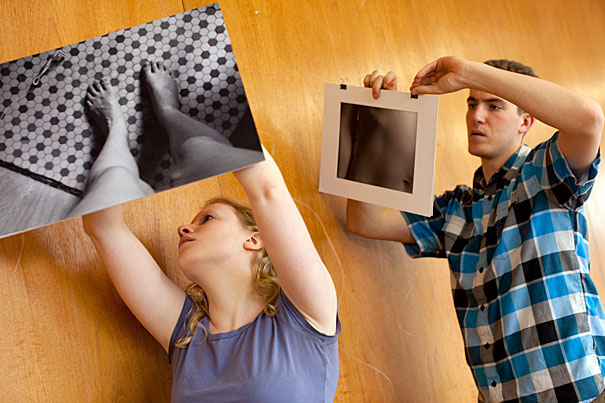
-
Casting an impression
Through studio sessions at the New England Sculpture Service, the course “Cast in Bronze: A Workshop in Exploring and Creating Bronze Sculpture” provided the opportunity not only to create bronze sculptures, but also to better understand the practice and craft of making art.
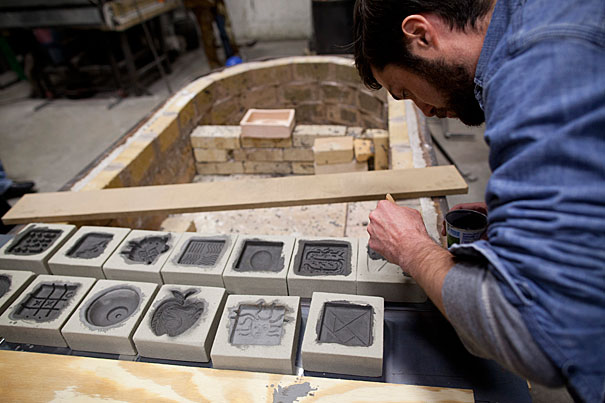
-
Lady Gaga visits Harvard
Harvard students braved the snow to welcome Lady Gaga to campus.
-
A work supreme
During a lecture that is part of a series of master classes sponsored by Harvard’s Mahindra Humanities Center, Harvard Professor Ingrid Monson explored the genius behind John Coltrane’s 1965 jazz album “A Love Supreme.”
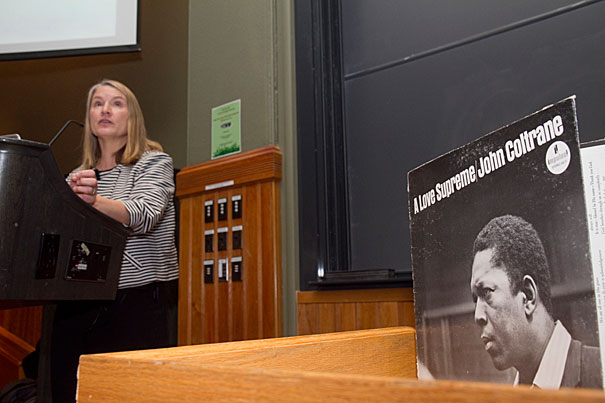
-
Rousseau occupies Houghton
On the tricentennial celebration of Jean-Jacques Rousseau’s birth, the author and philosopher is being honored with an exhibition of his works at the Houghton Library. “Rousseau and Human Rights” continues through March 23.
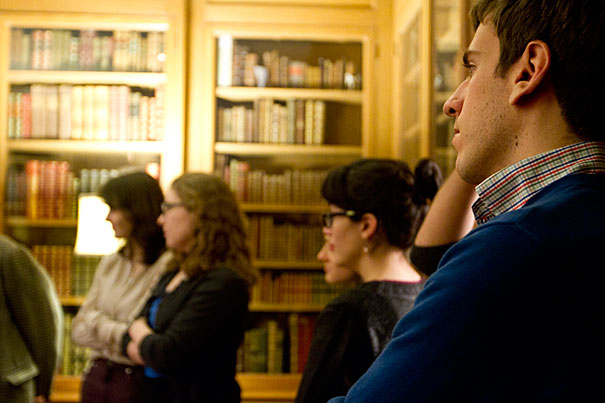
-
From V-2 rocket to moon landing
A new book explores the connections among World War II scientists, the V-2 missile, and the U.S. race to the moon, led by German émigré Wernher von Braun.
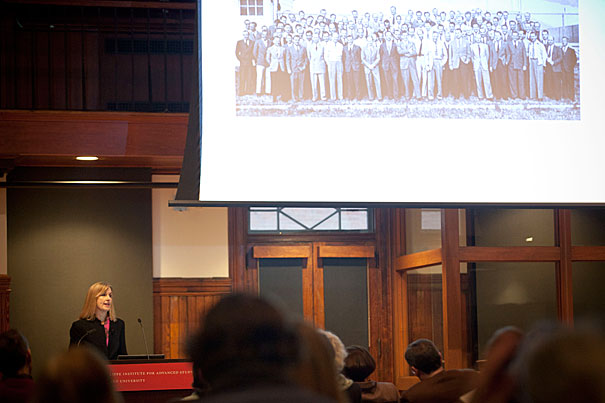
-
The Last Supper as Passover
A leading cultural and intellectual historian of Renaissance Europe, Princeton Professor Anthony Grafton suggests that the diligent work of 16th-century scholar Joseph Scaliger, in particular, led to the theory that the Last Supper may well have been in fact a Passover Seder.
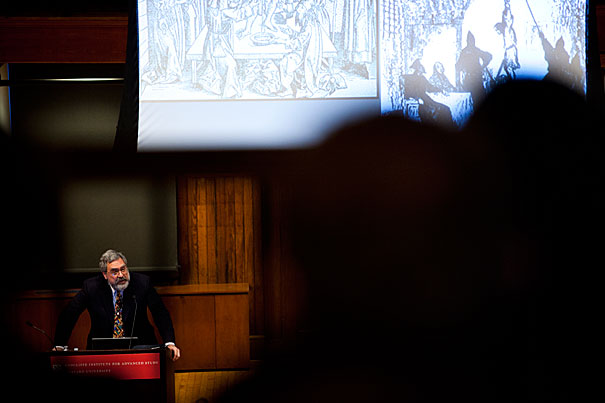
-
When religion turned inward
A groundbreaking speech by Ralph Waldo Emerson at Harvard Divinity School in 1838 helped to transform faith, spur the transcendentalist movement, and change the future of Harvard.
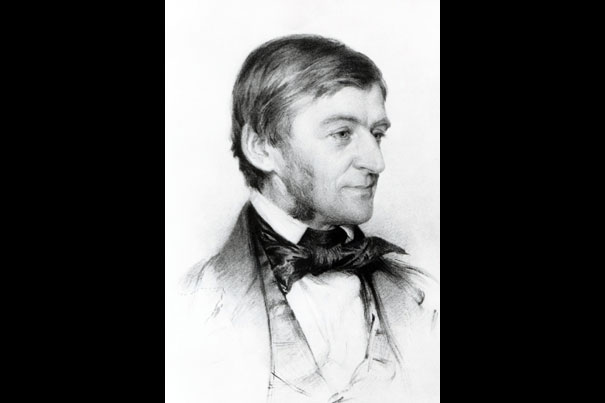
-
An artful perspective
Museum educators are using their collections to help members of the Harvard community explore salient issues like creativity and leadership in new ways.
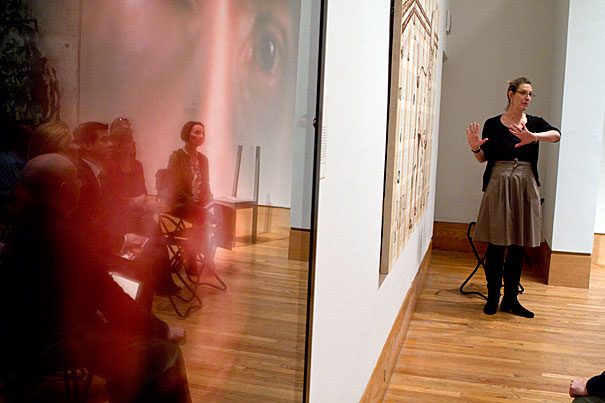
-
Let there be music
As a liberal arts college, Harvard trains its students broadly so they can adapt nimbly to a rapidly changing world. Increasingly, appreciating and participating in music are integral parts of student life.
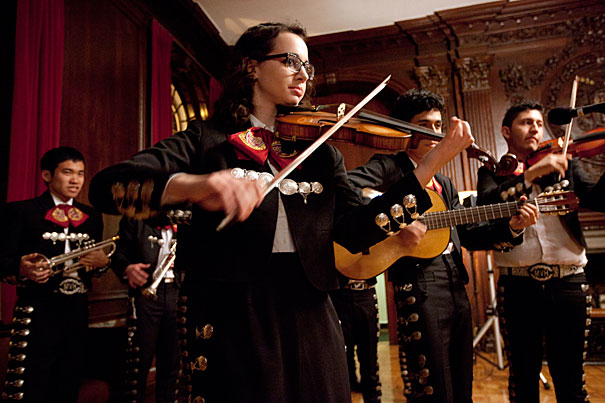
-
The Nostalgics, a Harvard Motown band
One of the many student-led musical groups on campus, The Nostalgics keep a Detroit sound tradition alive as Harvard’s Motown and soul band.
-
Chicago as urban microcosm
For his new book, Robert Sampson studied the Second City’s ups and downs for 15 years to outline patterns for many modern American cities.
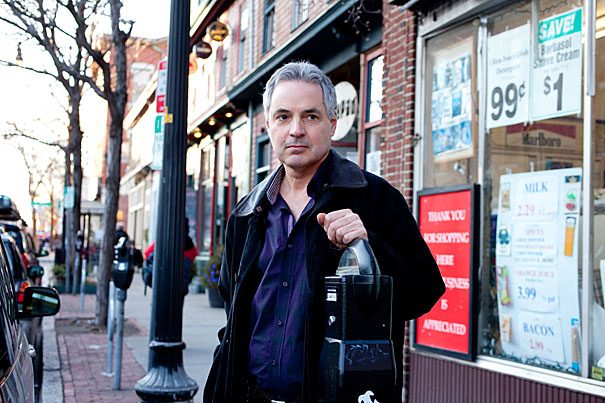
-
Mariachi Véritas de Harvard
Created in 2001, Mariachi Véritas de Harvard is a student-run group that focuses exclusively on the mariachi musical tradition.
-
Harvard Gregorian Chant
Members of the Harvard community gather regularly in the basement of the Memorial Church for an informal hour of Gregorian chant singing under the guidance of Thomas Kelly, Morton B. Knafel Professor of Music.
-
Harvard-Radcliffe Orchestra
Founded as the Pierian Sodality in March 1808 by a handful of students, today the Harvard-Radcliffe Orchestra is a collection of more than 100 accomplished musicians who present four major concerts each year.
-
Madison Greer, solo artist
During her time at Harvard, Jazz singer and junior Madison Greer has developed her skills in music theory and music performance and learned how to “front” a band.
-
Where medicine meets artistry
Transit Gallery at Harvard Medical School, with a new show up, invites busy walkers to slow down and look. Co-exhibitors Svetlana Boym and Deb Todd Wheeler will discuss their work and attend a reception on Feb. 15.
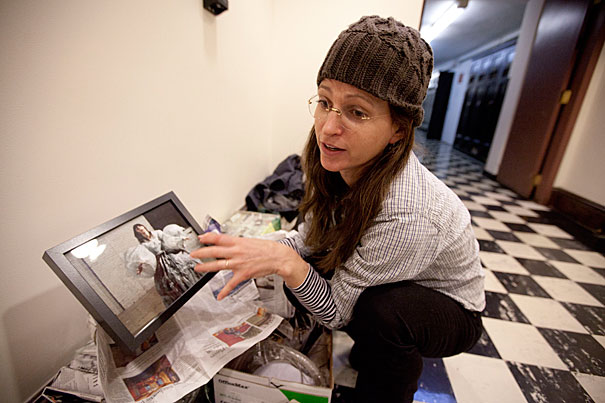
-
Notes on music’s lessons
At Harvard as part of an ongoing lecture and performance series, musician and composer Wynton Marsalis met with the Harvard community for two far-reaching discussions in which music and the arts played seminal roles.
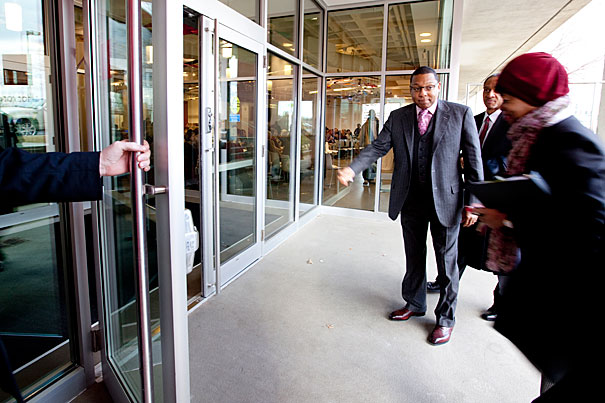
-
In a land of equality, racism
“Queloides,” an art exhibit visiting Harvard, shows how racial stereotypes prevailed even after the Cuban Revolution.
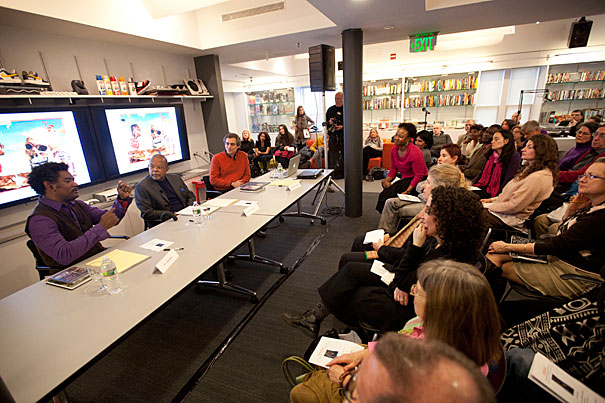
-
The melding of American music
Backed by an all-star band, Wynton Marsalis explored the “mulatto identity of our national music” with a rollicking performance and a thoughtful lecture on America’s porous tuneful genres at Sanders Theatre Feb. 6.
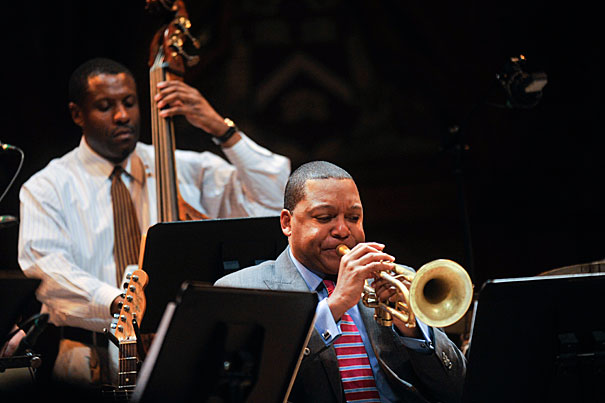
-
A jewel in the light of Tel Aviv
With a new museum wing in Tel Aviv, a Harvard architect offers a middle-ground paradigm for buildings that display art.
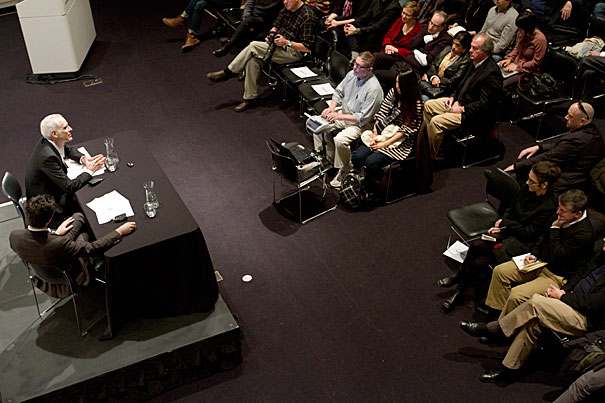
-
Sensibly saving Jane Austen
Two of Jane Austen’s letters — thousands of which were written but only dozens of which were preserved — undergo careful repairs at Harvard, where they reside at Houghton Library.
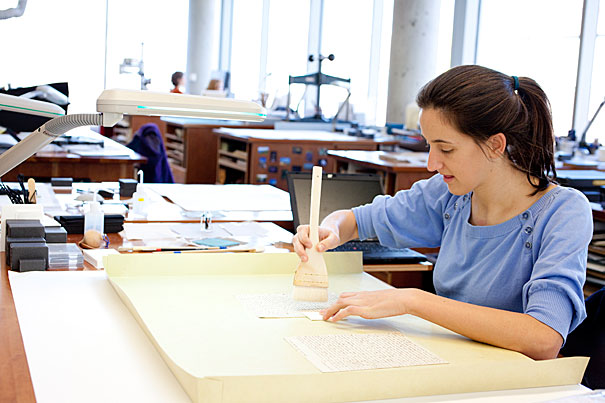
-
The West, plagued by self-doubt
In his new book, noted historian Niall Ferguson sees Europe and America as facing a profound crisis of confidence in what the future holds.
